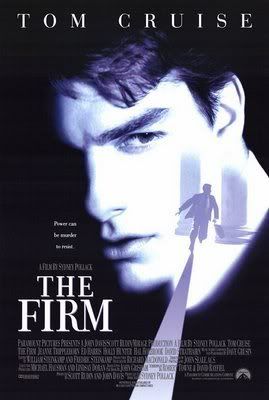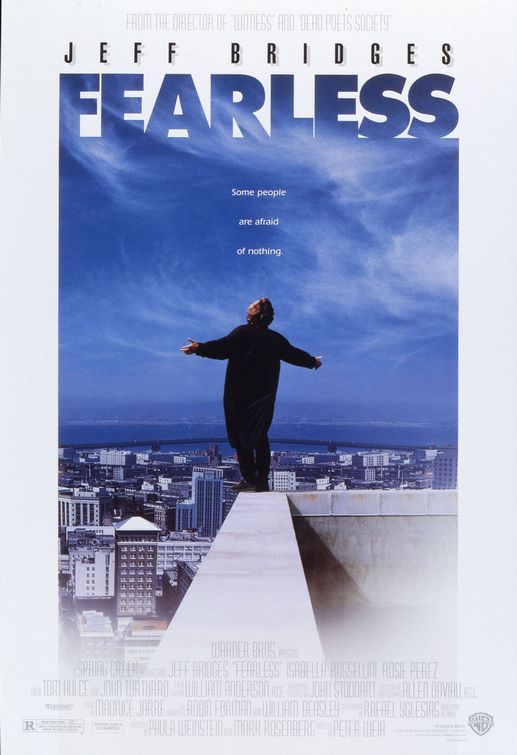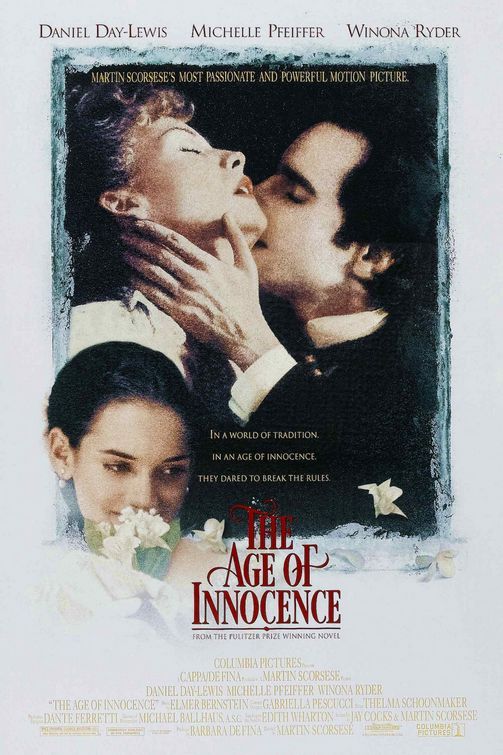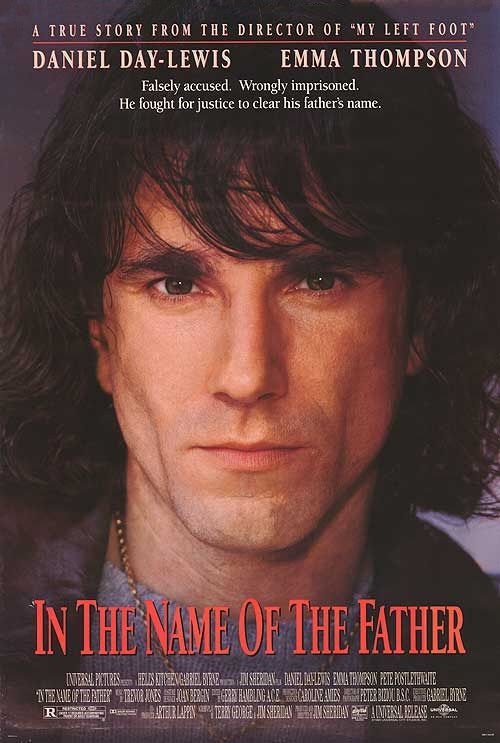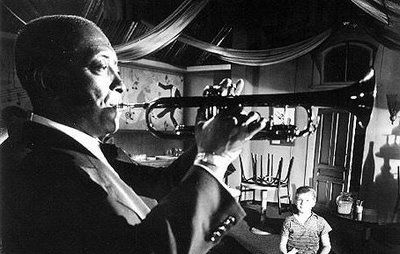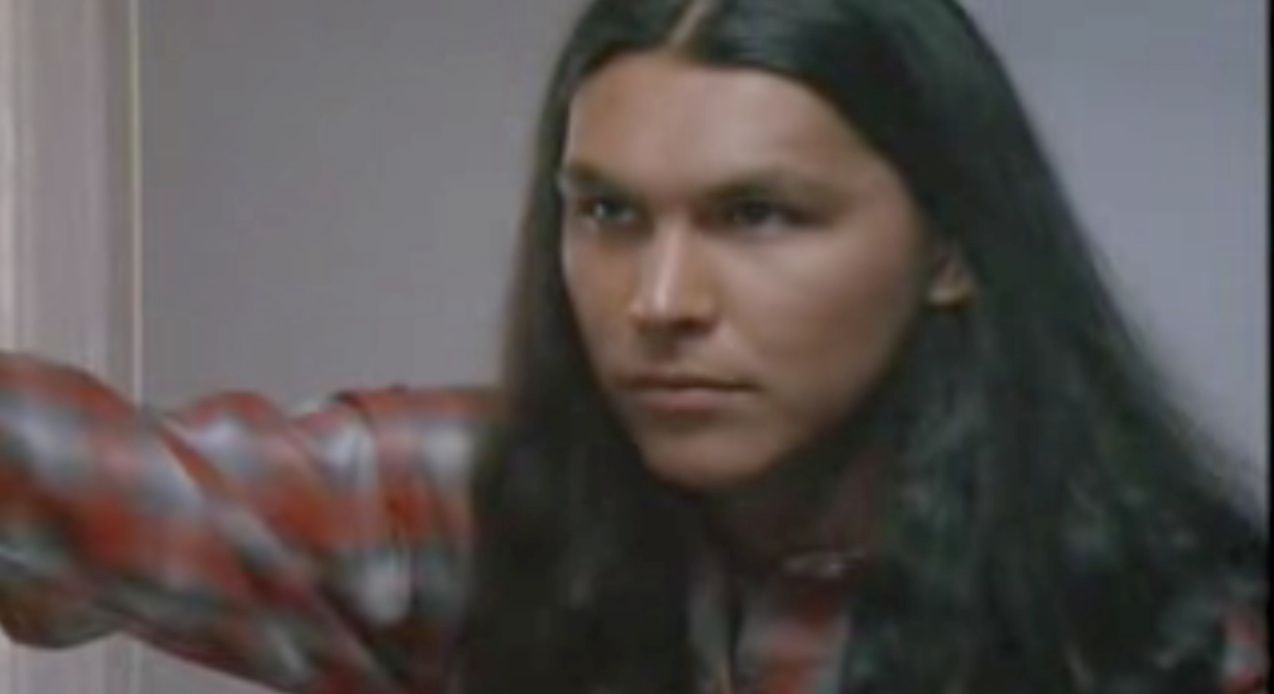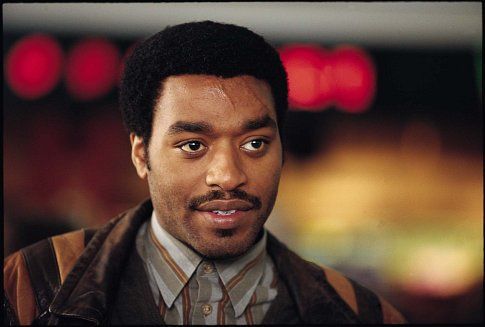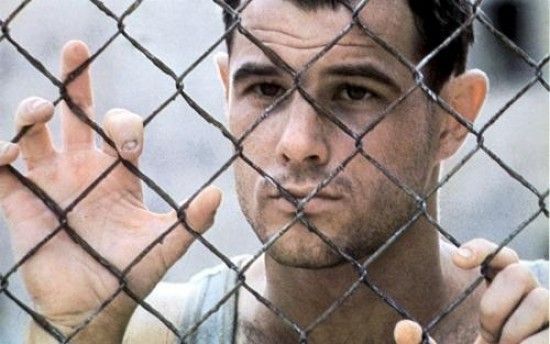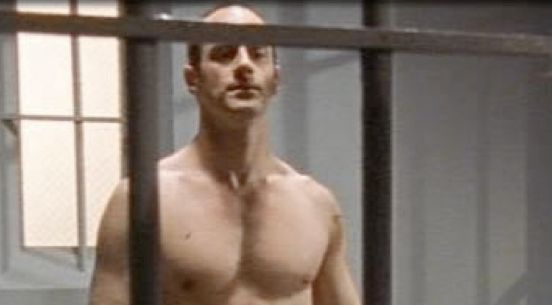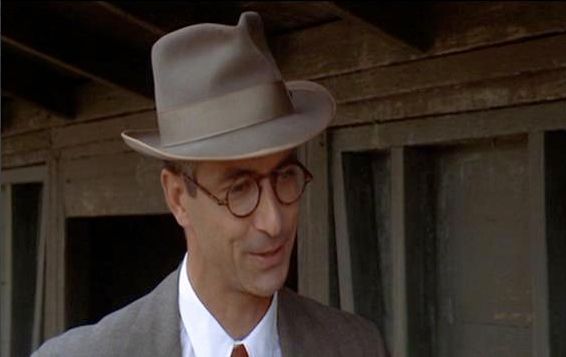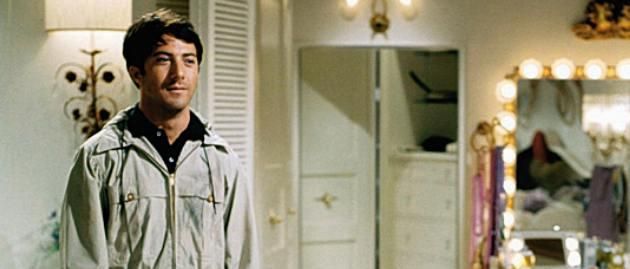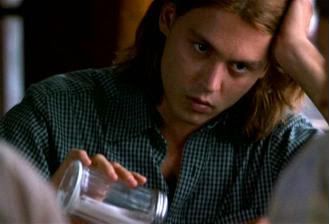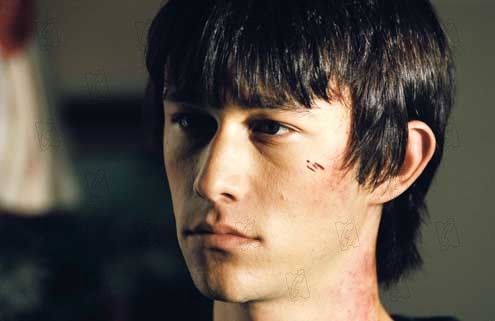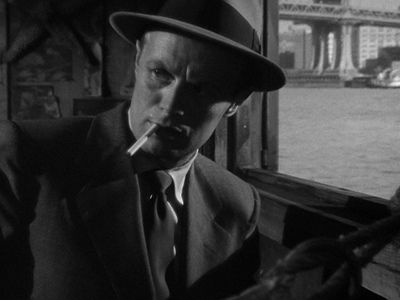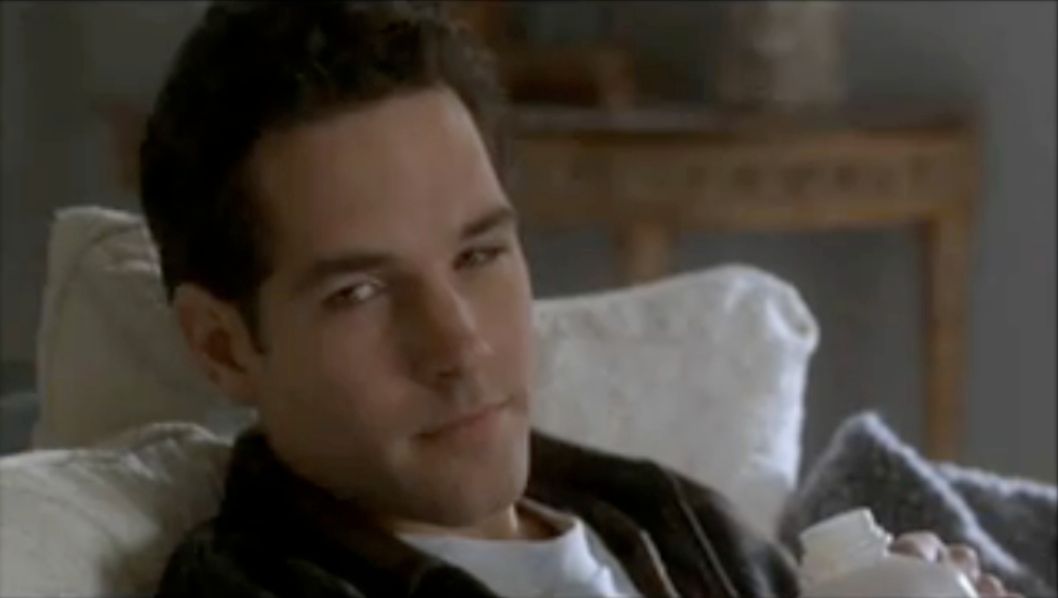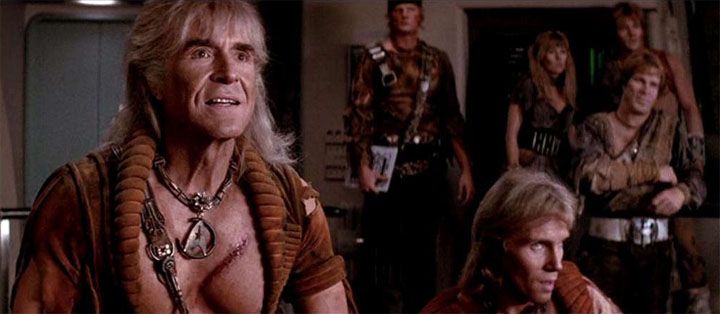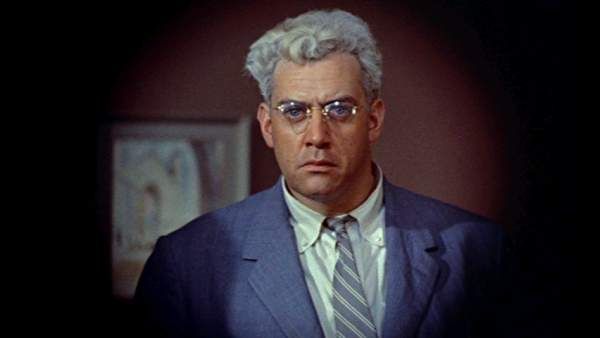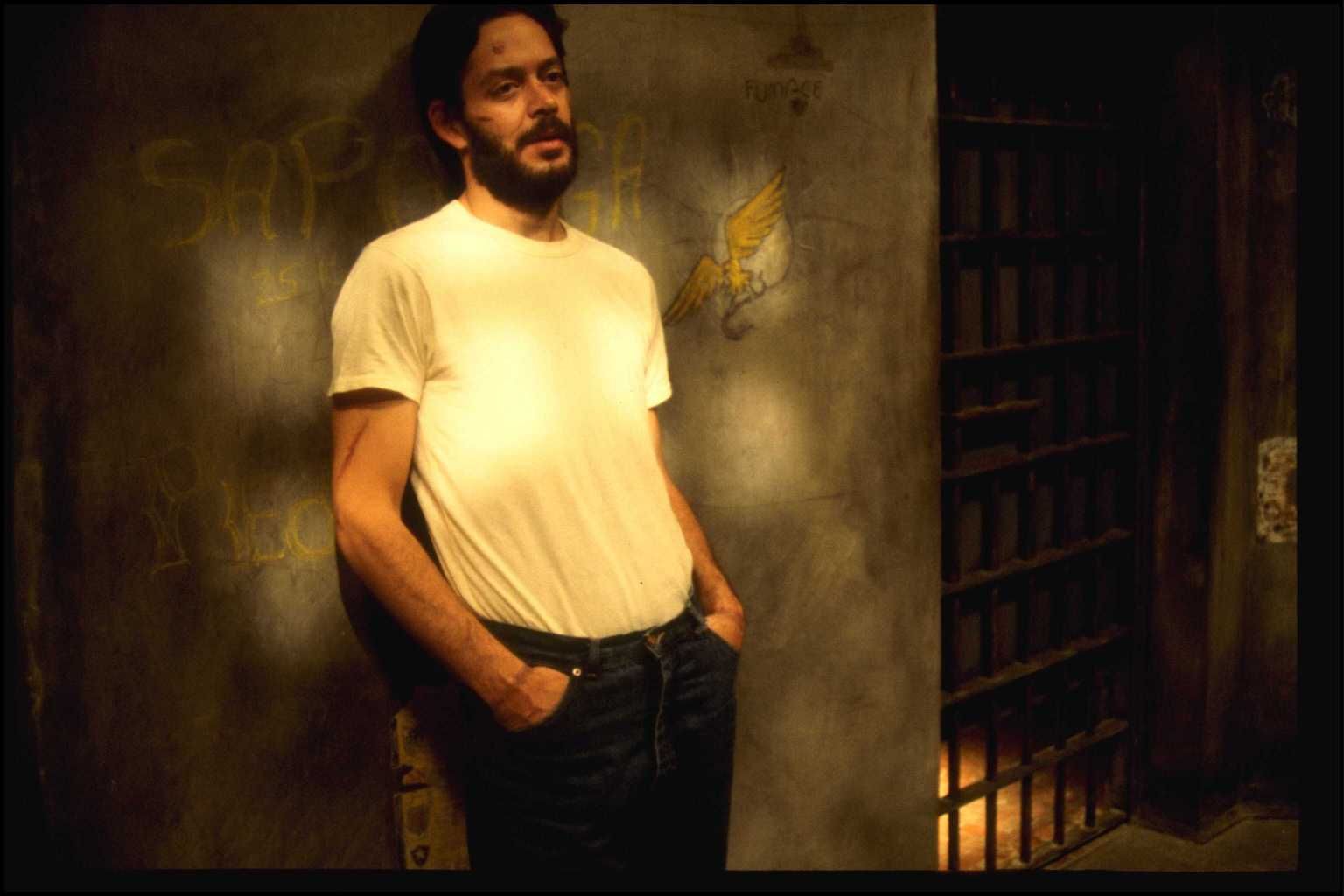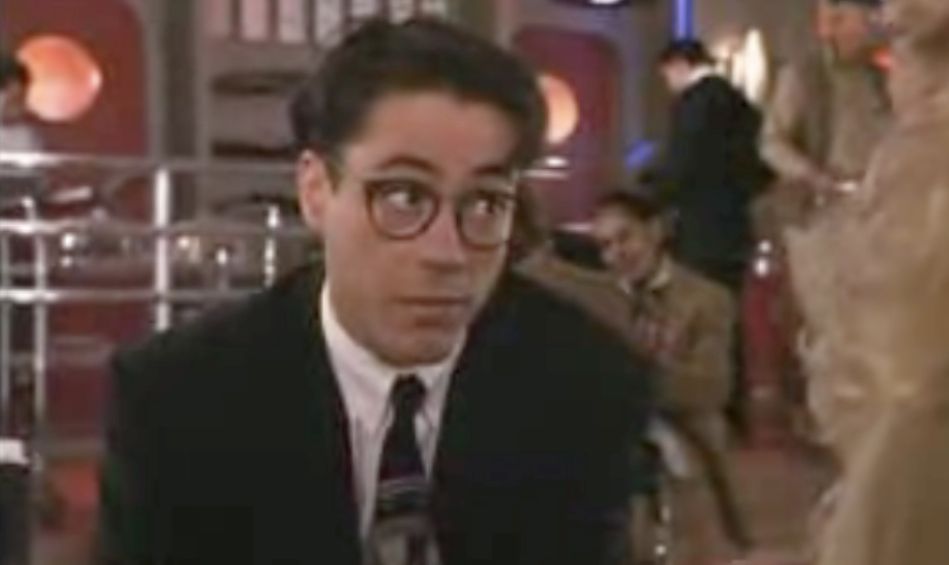
Again, it's been a while... Look this week for some clarification about the upcoming months Supporting Actress Sunday routine. But, as some of you have been careful to note, I've not yet dispatched all my 1983 duties. So without further ado: perhaps the most contentious and most maligned Supporting Actress nomination of 1983...

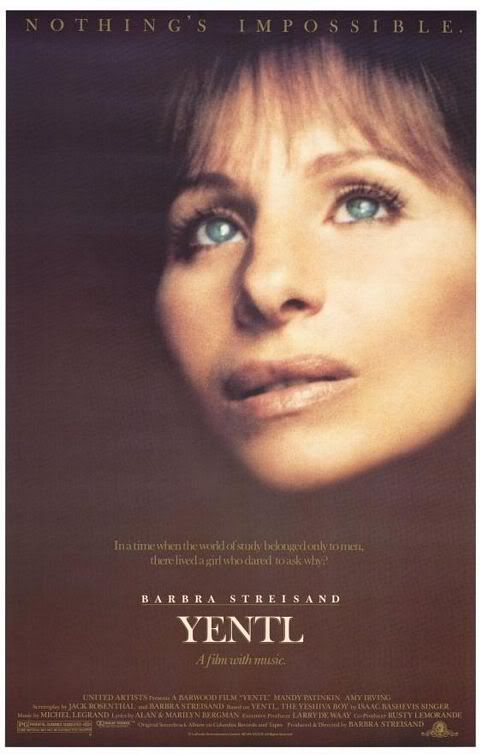 ...Amy Irving in Yentl (1983)approximately 26 minutes and 18 seconds
...Amy Irving in Yentl (1983)approximately 26 minutes and 18 seconds
13 scenes
roughly 20% of film's total running timeAmy Irving plays Haddass -- a nice, attractive and marriageable Jewish girl -- who unwittingly finds herself at the center of an unlikely romantic triangle when she becomes betrothed to the bookish and shy Anshel (whose actual name is Yentl and who's played [with few surprises] by Barbra Streisand).
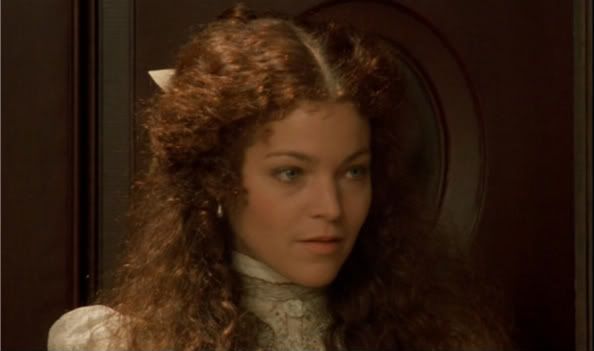
The film tells two main stories. The first, which has little to do with Hadass, depicts the story of the intellectually ambitious Yentl who, having been surreptitiously schooled in the study of Talmud by her rabbi father since girlhood, decides to continue her studies after his death. In order to do so, however, Yentl must cut her hair and pretend to be a boy: Anshel. The second main story, which involves Hadass centrally, depicts the many ways Yentl bridles against the pressures her community places upon women to conform to exacting ideals of domesticated, subservient femininity. When Yentl dons the identity of Anshel, she is doing so both to pursue her dream of intellectual study and to flee the confinements of gender expectation.
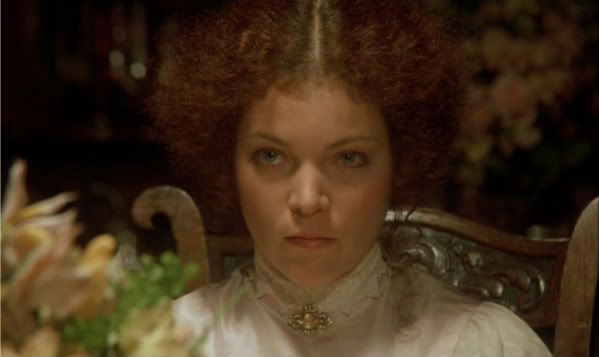
Irving's Haddass happens also to be betrothed to Avigdor (Mandy Patinkin, a moody and charismatic romantic hero). Streisand -- as Anshel -- depends upon Patinkin's Avigdor as a friend and intellectual mentor even as Streisand -- as Yentl -- falls ever more in love with him.
Irving's Haddass becomes the model of femininity -- one Streisand's Anshel observes studiously and one against which Streisand's Yentl inevitably compares herself.
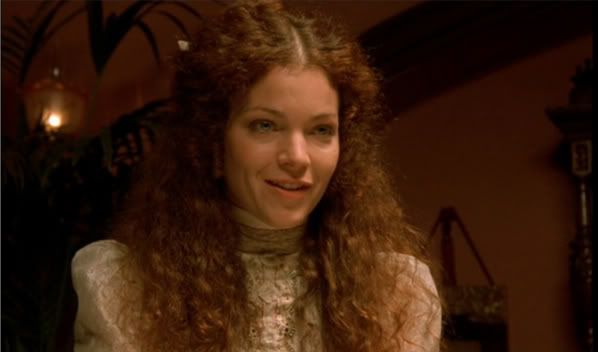
Irving's Haddass is, of course, completely oblivious to all of this. Yet hers is not a blissful ignorance. In the character's earlier scenes (when she's mostly waiting on "the men"), Irving crafts a portrait of an anxious young woman terrified that she might disappoint those ("men") whose approval she craves.
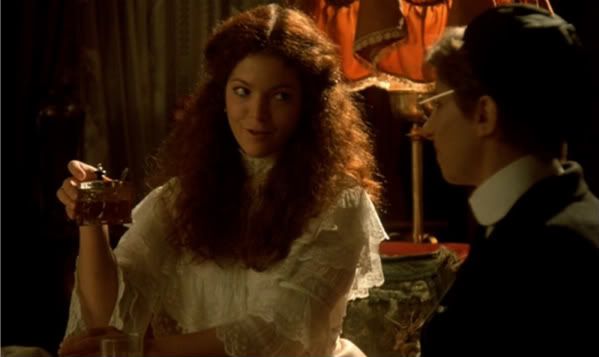
Streisand's character observes Haddass's anxiety with a fascinated empathy. Yentl is stunned to see that even the beautiful and obedient Haddass struggles mightily to meet the exacting patriarchal expectations of femininity.
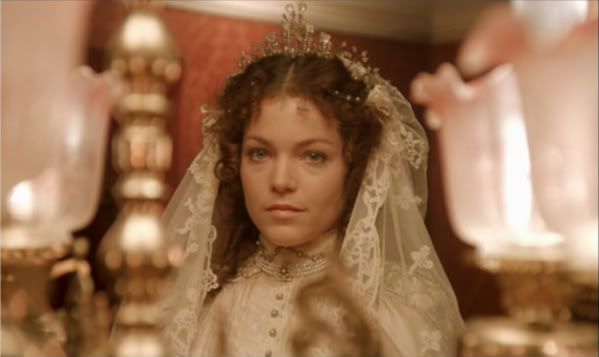
As the narrative proceeds, and (due to plot machinations I won't go into here) as Streisand's character comes to know and appreciate Haddass more intimately, Irving's performance shows Haddass blossoming under Ansel/Yentl's complicated scrutiny.
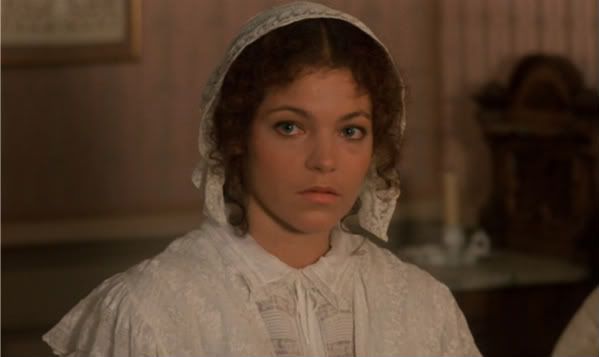
With carefully measured shifts in affect, Irving marks how Haddass's affections shift from an infatuation with Avigdor's charismatic masculinity to a more surprising delight in Anshel's thoughtful attention.
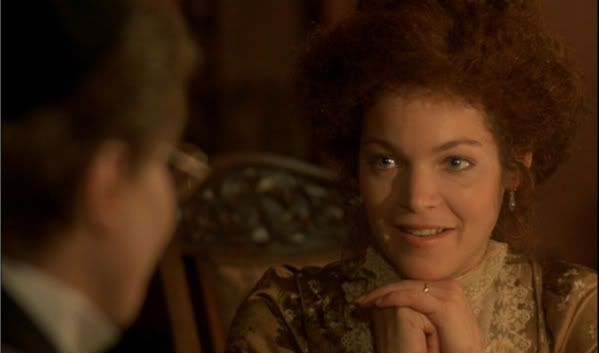
Somehow, Irving's performance makes it a "no-brainer" that Haddass would ultimately fall in love with Anshel and, as such, Irving's Haddass introduces a second level of risk to the Streisand character's self-concealment: Yentl/Anshel's secret threatens to devastate Haddass.
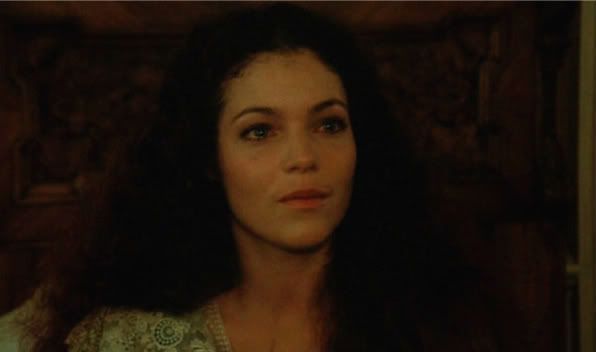
There's something really interesting in this aspect of Streisand's treatment of the Yentl story. Indeed, as Anshel/Yentl begins to mentor Haddass to stand up for herself and to assert her right to sexual consent, something unexpected happens: Anshel/Yentl begins to care about Haddass.
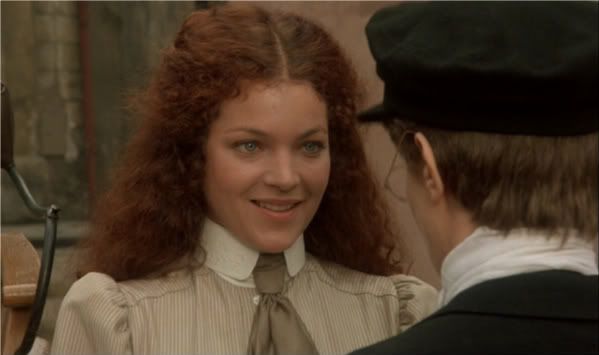
It's not necessarily a romantic love, but it does emerge as a genuine emotional connection shared between the two, and its integrity impels Anshel/Yentl to abandon the ruse, lest it hurt Haddass even more unnecessarily. It's a subtle, surprising shift: Streisand's character has heretofore been driven exclusively by more selfish impulses (the consuming love of learning, a driving passion for Avigdor), yet here Anshel/Yentl acts out of empathy for another, out of love for Irving's Haddass.
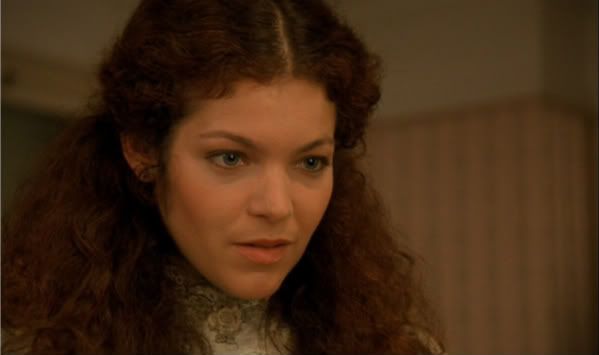
Throughout the role, Irving embodies the idealized, deferential Hadass with ethereal warmth and formidable feeling. The actress aptly conveys the character’s shifting (and largely concealed) conflicts as she is transformed by her encounter with Streisand’s Anshel.
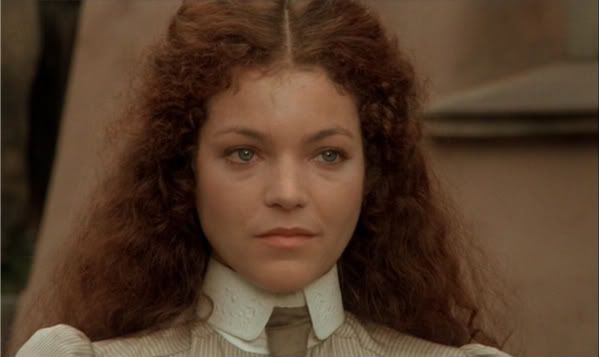
Streisand's film is entirely anchored in the emotional point-of-view of her central, bifurcated character. Streisand's performance is the thrilling stunt that impels the film, yet Irving's characterization of Haddass stealthily amplifies the deeper emotional stakes of the narrative.
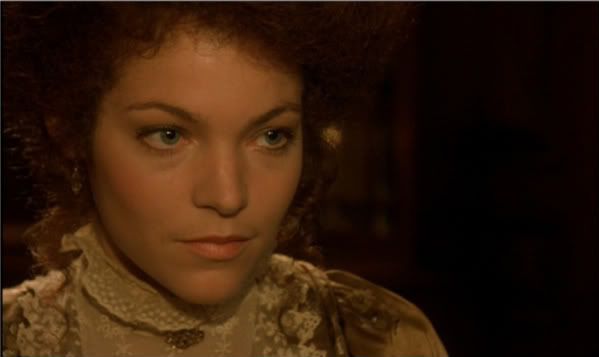
Indeed, saddled with a character who's utterly clueless about the actual story she's a part of, Amy Irving -- steadily, subtly, startlingly -- delivers an indelible, enduring performance of one of the category's most enduring stock characters: the girl who inspires great action.












